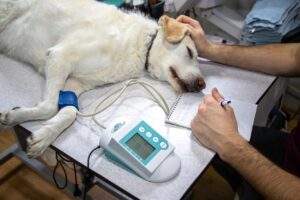Health Requirements for Umrah Travelers
Umrah is a reverential spiritual journey performed by Muslims all over the world. Unlike Hajj, it is known as the lesser pilgrimage. It is the spiritual journey undertaken by Muslims who are mentally, physically and financially sound. Nowadays, a plethora of certified travel companies are working round the clock to provide their Hajj or Umrah clients with friendly and affordable Umrah packages to cater to their needs.
However, Umrah is not taken as a mere physical journey towards the holiest city of Mecca. It is a spiritual experience that must be availed in this golden opportunity with utmost religious fervor.
Significance of Healthcare for Umrah
Therefore, your healthcare must inevitably be your top priority because Health is Wealth. Your Umrah is the golden spiritual chance to witness the charismatic grandeur of the holiest place on Earth which is none other than the Holy Kaaba. In order to imbibe the spiritual showers of this beatific place, it is inevitably important to be healthily fit in all aspects.
It’s the ultimate truth that sickness or illness is from Allah (SWT) but the exercise of precautionary measures is entirely in our hands. Allah (SWT) has bestowed us with considerable wisdom to take care of our health.
Health Requirements by the Saudi Ministry of Hajj & Umrah
In order to avoid any inconvenience for or during this crucially important religious journey, Saudi Management has meticulously designed some strict health care rules and regulations. Each and every Hajj or Umrah pilgrim has to come up with the health care recommendations mandatorily.
Infectious Diseases of Great Concern for Umrah or Hajj
There are some threatening diseases of great concern. The Ministry of Hajj and Umrah has recommended all the travelers to take precautionary measures against the diseases that pose the danger to human health.
There are some hazardous diseases that are prevalent in some countries because of their ecosystem and other socio-cultural issues. Moreover, these infectious diseases are also contagious which are transmitted from one person to another. These diseases are the following
Yellow Fever
The Ministry of Hajj has directed the Hajjis or Umrah Pilgrims coming from the countries with the possible threats of Yellow fever. It is a viral disease caused by mosquito bites. Its symptoms take 3-6 days to develop which include fever, chills, headache, backache and muscle aches. If it becomes chronic, it may lead to serious illness which may involve bleeding, shock, organ failure and sometimes even death.
Countries at Risk of Yellow Fever
The research shows a long list of countries having threats of yellow fever. As per the World Health Organization, the countries with the risk of the Yellow Fever are the following
- African States
The African countries such as Angola, Benin, Burkina, Faso, Burundi, Cameroon, the Central African Republic, Chad, Congo, Guinea, Ghana, Guinea, Kenya, Liberia, Mali, Niger, Nigeria, Mauritania, Senegal, Sierra Leone, Sudan, Togo, and Uganda
- South and the Central American States
The South and the Central American States with Yellow Fever threats are Brazil, Colombia, Ecuador, French Guiana, Guyana, Panama, Paraguay, Peru, Bolivia, Surinam, and Trinidad and Tobago.
These countries must be vigilant enough to take measures to disinsect the Yellow fever threats completely. The ships, airlines, flights coming from these countries to Saudi Arabia are required to submit the vaccination certificate against this viral disease.
Meningococcal meningitis
It is another threatening bacterial disease spread by the people through their respiratory and throat secretions (Saliva or Spit). This Bacteria is known as Neisseria meningitides which causes Meningococcal Disease. This disease is spread easily from an infected person to the healthy one when both come into contact. It may proliferate in overcrowded places, as well as sharing utensils, coughing, sneezing or even kissing.
People at Risk
The regular globetrotters, the army and military officials, students, persons with a weak immune system and children under five years of age and the travelers attending larger cultural events are at risk of catching this daunting disease.
Symptoms
Its symptoms appear 10-15 days after the inclusion of bacteria in the body. These symptoms include sudden onset of headache, fever, stiff neck, sensitivity to light, confusion, and vomiting. If becomes chronic, it may lead to brain damage, hearing loss or cognitive disabilities in some people.
Saudi Steps Against Meningococcal meningitis
It is mandatory for all the domestic and international travelers of all the ages to get themselves vaccinated against this painful disease. Especially the children of 2 years of age brought by the pilgrims on Umrah or Hajj zone, must be vaccinated against this harmful disease. A vaccination certificate is required to present before the Saudi Ministry to initiate your Umrah itinerary.
Two types of Vaccines
You are required to have one of the two vaccines for your Meningitis Vaccination
- Quadrivalent (ACYW) polysaccharide vaccine within the last 3 years.
- Quadrivalent (ACYW) conjugate vaccine within the last 5 years
It is mandatory for the pilgrims to get this vaccination at the right time and mention the type of the vaccine clearly in the vaccination certificate.
Poliomyelitis
Poliomyelitis is a very painful virus whose vaccination is more than mandatory for every person. Those countries with active transmission of wild poliovirus and from the countries at risk of polio reintroduction are required to submit a polio vaccination certificate.
Countries Carrying the Risk of Polio
Travelers from the countries like Afghanistan, Congo, Mozambique, Niger, Nigeria, Pakistan, Papua New Guinea, Syria, Myanmar, Yemen, and Somalia should present proof of vaccination with at least one of the following vaccines:
- At least one dose of bivalent oral polio vaccine (OPV) within the previous 12 months and administered at least 4 weeks before arrival or
• At least one dose of inactivated polio vaccine (IPV) within the previous 12 months and administered at least 4 weeks before arrival.
Seasonal Influenza
The countries coming from the Southern Hemisphere are requested to get themselves vaccinated against this disturbing seasonal influenza. Influenza vaccination is really important for pregnant women, children under the age of 5 and elder individuals with problems in breathing or respiration.
Preventive Measures for the Heat Stroke
Due to the extreme Saudi weather conditions, the pilgrims are most likely to effect from the heatstroke. Therefore the Saudi Ministry directs all the pilgrims of Umrah and Hajj to drink and take enough water to reduce the risk of heatstroke.







